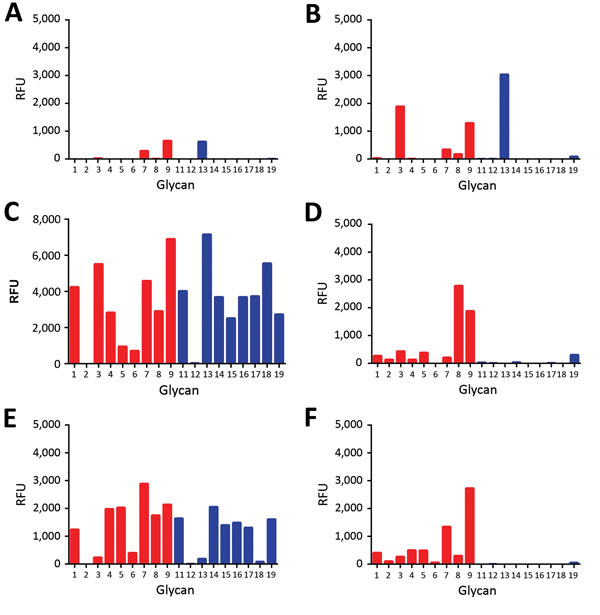Volume 23, Number 2—February 2017
Research
Highly Pathogenic Influenza A(H5Nx) Viruses with Altered H5 Receptor-Binding Specificity
Figure 7

Figure 7. Glycan array analysis of influenza A virus mutant H5 proteins. A) mutant H5N12.3.4 K222Q (QS); B) mutant H5N12.3.4 S227R (KR); C) mutant H5N12.3.4 K222Q/S227R (QR); D) H5N8 Q222K (KR); E) R227S (QS); F) Q227R/R227S (KS). Proteins were applied to the glycan array as detailed in the legend to Figure 2. Letters in parentheses indicate amino acids at positions 222 and 227. Binding of hemagglutinins is indicated in relative fluorescence units (RFU). Binding is shown to sialylated glycans present in the array in nonfucosylated (glycans 1–9; red bars) and fucosylated (glycans 11–19; blue bars) forms. Glycan numbers indicated on the x-axes correspond to glycan structures shown in Figure 3. H5N12.3.4, novel H5N1 virus clade 2.3.4.
1These authors contributed equally to this article.